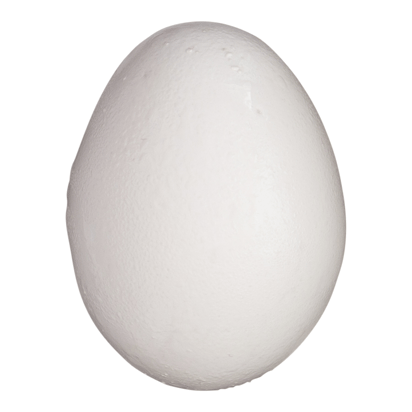Eggs: Important Facts, Health Benefits, and Recipes
Explore the health benefits, nutritional information, and various uses of eggs in different cuisines, as well as the history and best storage practices for this versatile food.

Best Eggs Recipes
-

-
:max_bytes(150000):strip_icc()/hearty-slow-cooker-chicken-chili-4062489-7_preview-5afddd18c06471003698b6c2.jpeg)
-
:max_bytes(150000):strip_icc()/crock-pot-cornbread-dressing-102016-57f7a4363df78c690f4dafdc.jpg)
-
:max_bytes(150000):strip_icc()/brunswick-stew-with-pork-and-chicken-3052066-step-07-1fc2a179567d4a94a8d69c1119f3acb2.jpg)
-
:max_bytes(150000):strip_icc()/crock-pot-red-beans-and-rice-recipe-4109835-hero-01-ffcb13186bf743aaaa461b113023a0f5.jpg)
-

-
:max_bytes(150000):strip_icc()/cabbage-soup-102016-57ff65213df78cbc280a641f.jpg)
-
:max_bytes(150000):strip_icc()/__opt__aboutcom__coeus__resources__content_migration__serious_eats__seriouseats.com__recipes__images__2015__11__20151102-oyster-cornbread-stuffing-vicky-wasik-20-4870c5299a0041ce8d2c5d5d7d6e8fe2.jpg)
-
![Roasted Winter Squash with Cornbread Stuffing Image]()
-
![Basic Cornbread Dressing Recipe Image]()
-
![Classic Southern Cornbread Dressing Recipe Image]()
-
![Southern Cornbread and Oyster Dressing Recipe Image]()
-
![Bacon-Wrapped Turkey Breast With Cornbread Stuffing Recipe Image]()
-
![Grilled Turkey Breast With Cranberry Stuffing Recipe Image]()
-
![Stuffed Pork Chops Recipe | Grilling Image]()
-
![The Silver Palate's Corn Bread-Sausage Stuffing With Apples Recipe Image]()
-
![Recipe for Panettone Cake Truffles Image]()
-
![Crock Pot Bread and Cornbread Dressing Recipe Image]()
-
![Florida Sweet Corn and Sausage Stuffing Image]()
-
![Stuffed Cornish Hens Image]()
-
![Cornbread Dressing with Oysters Image]()
-
![Mexican Sausage & Cornbread Strata Image]()
-
![Rolled-Up Turkey Image]()
-
![Red Pepper Meat Loaf Image]()
-
![Enchilada Meatballs Image]()
-
![Shrimp Dressing Image]()
-
![Cornbread Sausage Stuffing Image]()
-
![Sausage and Cornbread Dressing Image]()
-
![Chicken Cornbread Dressing Image]()
-
![Creamy Yellow Squash Casserole Image]()
-
![Wild Goose with Giblet Stuffing Image]()
-
![Vegetarian Pumpkin Chili with Cornbread Croutons Image]()
-
![Blue Cornbread Asian Pear Sausage Stuffing Image]()
-
![Vegetarian Mexican Stuffing Recipe Image]()
-
![Chicken Sausage Apple Cornbread Stuffing Image]()
-
![White Bean Chicken Chili Image]()
-
![Bundt Pan Cornbread Dressing Image]()
-
![Mom's Thanksgiving Dressing Image]()
-
![Cornbread Dressing with Sausage and Cranberries Image]()
-
![Vegetarian Cornbread Stuffing Recipe Image]()
-
![Cornbread Stuffing with Green Olives and Pecans Recipe Image]()
-
![Cornbread Dressing Image]()
-
![Chicken Cornbread Casserole Image]()
-
![Cornbread Croutons Image]()
-
![Fiesta Cornbread & Sausage Strata Image]()



:max_bytes(150000):strip_icc()/basic-cornbread-dressing-with-variations-3061402-hero-01-20d6672cce624fdfa5383101e4182e4f.jpg)
:max_bytes(150000):strip_icc()/cornbreaddressing-97247283-56c1e6b63df78c0b138f17ff.jpg)
:max_bytes(150000):strip_icc()/southern-cornbread-and-oyster-dressing-3061395-hero-01-3df6beb78eae4f5681fa34915b3677b9.jpg)
:max_bytes(150000):strip_icc()/__opt__aboutcom__coeus__resources__content_migration__serious_eats__seriouseats.com__recipes__images__2013__11__20131112-273476-bacon-wrapped-turkey-breast-9ac46307155d473ba66523e1726a6137.jpg)
/__opt__aboutcom__coeus__resources__content_migration__serious_eats__seriouseats.com__recipes__images__2011__11__20111115-179697-stuffed-turkey-breasts-5983b4dc2fde443d83f655d02b5a60a7.jpg)
:max_bytes(150000):strip_icc()/__opt__aboutcom__coeus__resources__content_migration__serious_eats__seriouseats.com__recipes__images__20091123-stuffed-pork-chops-cut-d630710020dc4a0f867d7e1c0e28a0e1.jpg)
:max_bytes(150000):strip_icc()/__opt__aboutcom__coeus__resources__content_migration__serious_eats__seriouseats.com__recipes__images__thanksgivingBug-fb2a759a494e488c911289799829598d.png)
/white-chocolate-and-panettone-truffles-496171637-5851910d3df78c491e57a290.jpg)
/thanksgiving-stuffing-at-the-table-182249518-586cfb6d3df78ce2c33edf9b.jpg)





















:max_bytes(150000):strip_icc()/cornbread-stuffing-recipe-3377809-hero-01-f17b4054fa374936a0f66bfa9f38f8ac.jpg)
:max_bytes(150000):strip_icc()/__opt__aboutcom__coeus__resources__content_migration__simply_recipes__uploads__2017__11__2017-10-28-Olive-Stuffing-FINALv2-1-b784b3948bec4e28975c3cb7da407dba.jpg)



